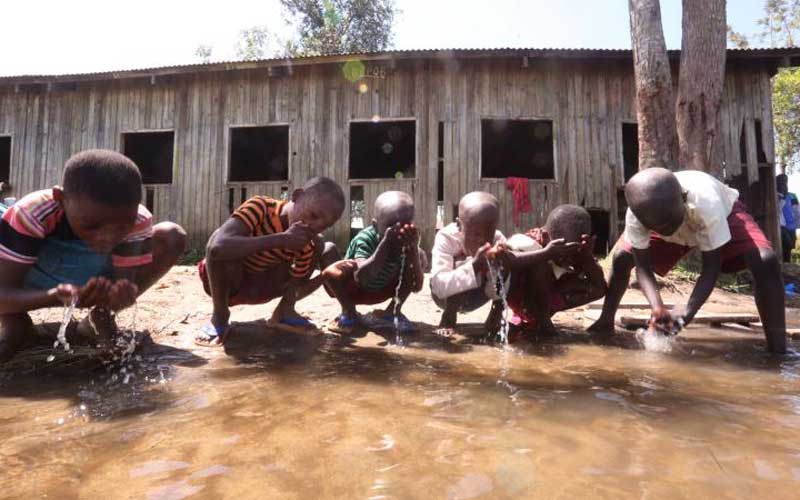×
The Standard e-Paper
Fearless, Trusted News

Maduwa Primary School pupils wash their faces outside their makeshift classrooms in Budalangi Constituency, Busia County on March 12, 2020. [Collins Oduor, Standard]
Every year on March 22, everyone around the globe focuses their attention to the importance of water for World Water Day.